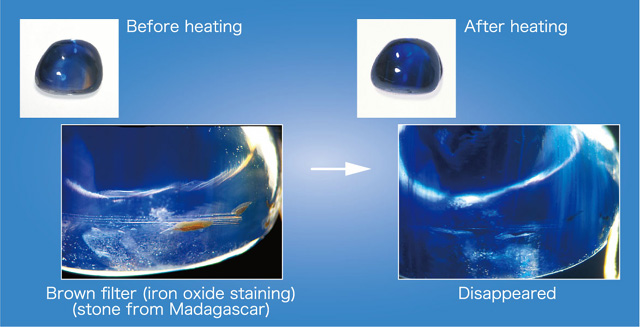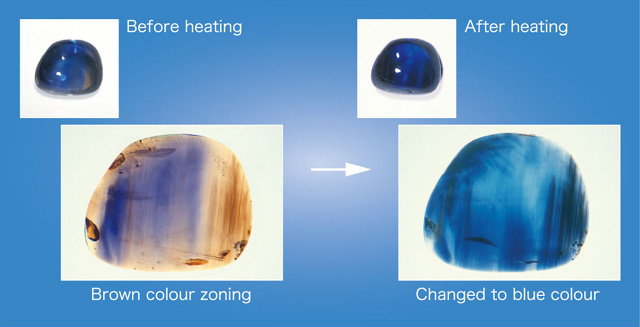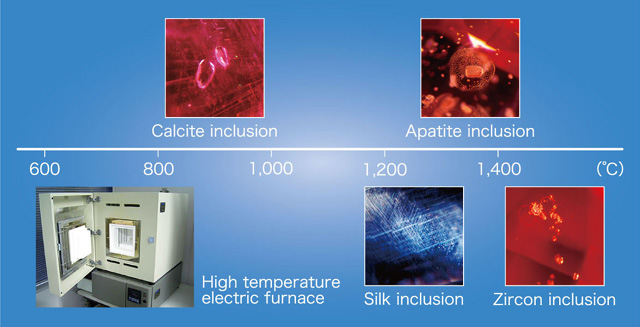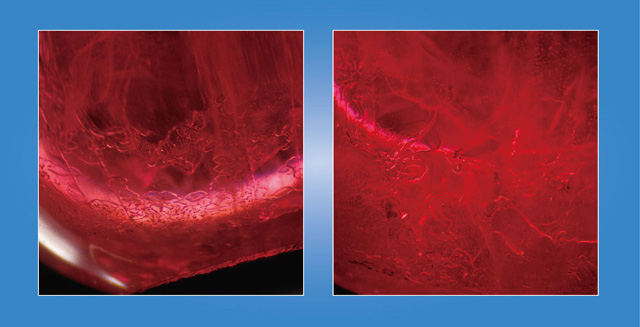|
When a stone to be heated contains a large negative crystal, heating process may cause burst so that such stone should be removed before heating.
Brownish colour of contaminated fracture caused by substance such as iron oxide staining will be reduced or disappeared by heating in most cases (figure 5). Similarly, brown colour zone will generally be improved to blue by heating (figure 6).
From the result of heating experiment using electric furnace performed at GAAJ laboratory, it was confirmed that calcite started to show alteration in its appearance between 800 and 1000ºC, and so did apatite, silk and zircon at around 1300ü`1400ºC, 1200ü`1300ºC and 1400ü`1600ºC respectively (figure 7).
Liquid inclusion is often healed by heating under high temperature (over 1000ºC?) and some substances such as flux including borax that are needed for heating process may be observed in fractures as residues (figure 8). Such residues are quite often seen in ruby from Mong-Hsu district in Myanmar.
ź UV Fluorescence Features Ruby generally shows red fluorescence under UV light. The intensity of the fluorescence is strong in stones of contact metamorphic rock origin in general such as from Myanmar, and rather weak in stones of igneous rock origin such as from Thailand or Cambodia. When a stone is heated, the intensity tends to be increased both under longwave and shortwave. Some rubies may show orangey fluorescence under LWUV and more chalky appearance under SWUV after heating. Blue sapphire will be inert or show orange to red fluorescence under UV light. The stone showing orange fluorescence under LWUV tends to gain red tint after heating. Some stones may show chalky appearance under SWUV after heating. |
||||||||||||||||
|



